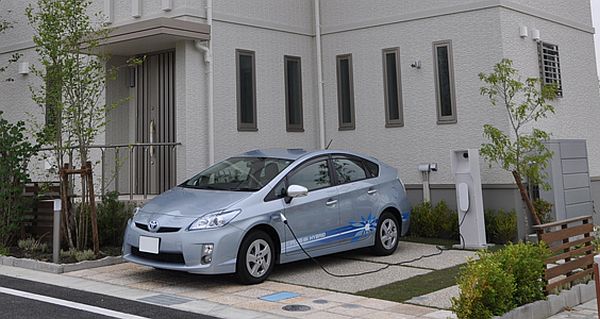
Toyota City in the Aichi prefecture is home to the headquarters of the world’s largest automobile company and many of its employees. As part of its contribution to a greener environment, Toyota Housing, a subsidiary of Toyota Motors, is building a set of 67 smart houses in Toyota city as a demonstration project in “the pursuit of optimal energy use in living spaces at the community level.”
Each of these smart houses will include photovoltaic panels and fuel cells as energy sources, rechargeable batteries for energy storage, and the “Ecocute” heat-pump-based water heater. The houses will have energy-efficient LED lighting. Linking all these together will be a Home Energy Management System (HEMS) that will enable the homeowner to monitor and regulate his energy consumption not just when he is at home but even when he is away, using his mobile phone. The individual HEMS will be internet connected to other HEMS and to the common facilities like schools, convenience stores, etc., so that in the event of high energy usage by any one user, others can lower their demand by turning off appliances and earning “eco-points.”
All transportation in this smart community will be by electric vehicles or plug-in hybrid electric vehicles. These will be supplemented by community-shared transportation, also electric. The HEMS will also permit energy demand and supply forecasting. For example, if the weather forecast predicts reduced sunshine, the HEMS will check the storage level of the battery in the EV or plug-in hybrid vehicle and either defer charging or even draw on the stored energy to manage the total demand. The battery of the EV will be the stand-by power source in the event of a total blackout .
The project aims to bring the carbon footprint of a smart house down 70% from a conventional house that uses a gasoline car. The first 14 of these smart houses will begin testing in September and the aim is to encourage other housing communities to learn from this pilot project.
Via: Akihabara News




